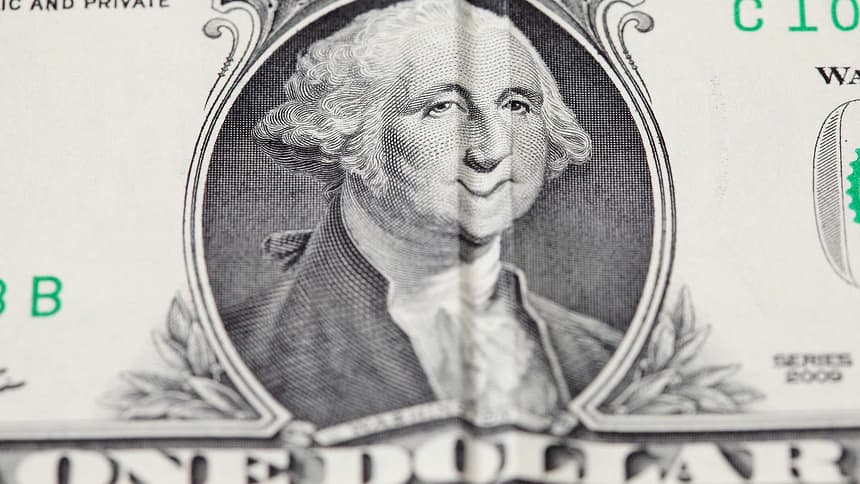- Today’s top CDs offer APYs up to 4.50%.
- CD rates are fixed, so your returns stay the same throughout the term.
- A CD can provide security and predictability in an uncertain economy.
Tariffs, inflation, a potential recession… The economy — and, as a result, your money — is affected by many factors you don’t have much control over. But there is one thing you can control: where you put your cash. And if you’re searching for some security in a turbulent economy, a certificate of deposit could be a great solution.
CDs are low-risk deposit accounts that guarantee a fixed rate for the entire term. That means you’ll earn the same amount of interest regardless of what happens in the economy. With today’s best CDs offering up to 4.50% annual percentage yield (APY), that can help you steadily grow any savings you can set aside for a time.
TAX SOFTWARE DEALS OF THE WEEK
Deals are selected by the CNET Group commerce team, and may be unrelated to this article.
Here’s where you can find the top CD rates available now.
Best CD rates today
| Term | Highest APY* | Bank | Estimated earnings on $1,000 deposit | Estimated earnings on $5,000 deposit | Estimated earnings on $10,000 deposit |
|---|---|---|---|---|---|
| 6 months | 4.50% | CommunityWide Federal Credit Union | $22.25 | $111.26 | $222.52 |
| 1 year | 4.40% | Bask Bank; CommunityWide Federal Credit Union | $44.00 | $220.00 | $440.00 |
| 3 years | 4.15% | America First Credit Union | $129.74 | $648.69 | $1,297.38 |
| 5 years | 4.20% | America First Credit Union | $228.40 | $1,141.98 | $2,283.97 |
Experts recommend comparing rates before opening a CD account to get the best APY possible. Enter your information below to get CNET’s partners’ best rate for your area.
What you’ll get when you open a CD
CDs offer a number of benefits, including:
- Guaranteed returns: Your APY is locked in when you open a CD, unlike with savings accounts, where interest rates can vary at any time. A CD’s fixed rate makes it easy to calculate how much interest you’ll earn over time and protects your funds from rate drops after you open your account.
- Competitive rates: Traditional savings accounts offer minimal APYs, sometimes as low as 0.01%. Today’s top-yielding CDs have APYs of 4.50% or more, which can make a difference in your interest earnings and help your money keep pace with inflation.
- Low risk: CDs held by an FDIC-insured bank or NCUA-insured credit union are protected for up to $250,000 per depositor, institution and account category. That means that if your bank fails, your money is safe. Other investments, like stocks, may potentially yield higher returns over the long term, but they’re also volatile, which means you could lose money at any time.
- Barrier to access: You can withdraw money in a savings account at any time, free of charge (as long as you mind any monthly withdrawal limits). Many CDs, however, charge an early withdrawal penalty if you take your money out before the term is up. This can help you resist the urge to dip into your funds before you need them.
Should you choose a high-yield savings account instead?
CDs have plenty of perks, but they’re not always the best option. “It really depends on your goals,” said Taylor Kovar, certified financial planner and CEO of 11 Financial.
To determine if a CD is the right choice for your money, ask yourself the following questions:
- When will you need your funds? “Before diving into a CD, consumers should think about their liquidity needs,” said Krisstin Petersmarck, financial advisor at New Horizon Retirement Solutions. “CDs lock your money in for a set period, and if you need to access those funds early, there could be penalties. So, it’s important to make sure that the money you invest in a CD is something you won’t need right away.”
- How much do you have to deposit? Some CDs require a minimum deposit to open an account, typically $500 to $1,000. If you can’t find an account with an attractive APY for the amount you want to deposit, try looking into a high-yield savings account with a low or no minimum deposit.
- Do you want to add money over time? Most CDs (though not all) only allow a one-time deposit. If you’d like to regularly add money to your savings over time, consider a high-yield savings account.
- Do you need some discipline? If you’re worried you’ll be tempted to tap into your savings before you need it, a CD imposes an early withdrawal penalty, which can help give you pause.
💰You can earn up to 5% APY on today’s best high-yield savings accounts. Check out top savings rates now.
Methodology
CNET reviews CD rates based on the latest APY information from issuer websites. We evaluated CD rates from more than 50 banks, credit unions and financial companies. We evaluate CDs based on APYs, product offerings, accessibility and customer service.
The current banks included in CNET’s weekly CD averages include Alliant Credit Union, Ally Bank, American Express National Bank, Barclays, Bask Bank, Bread Savings, Capital One, CFG Bank, CIT, Fulbright, Marcus by Goldman Sachs, MYSB Direct, Quontic, Rising Bank, Synchrony, EverBank, Popular Bank, First Internet Bank of Indiana, America First Federal Credit Union, CommunityWide Federal Credit Union, Discover, Bethpage, BMO Alto, Limelight Bank, First National Bank of America and Connexus Credit Union.
*APYs as of April 3, 2025, based on the banks we track at CNET. Earnings are based on APYs and assume interest is compounded annually.






